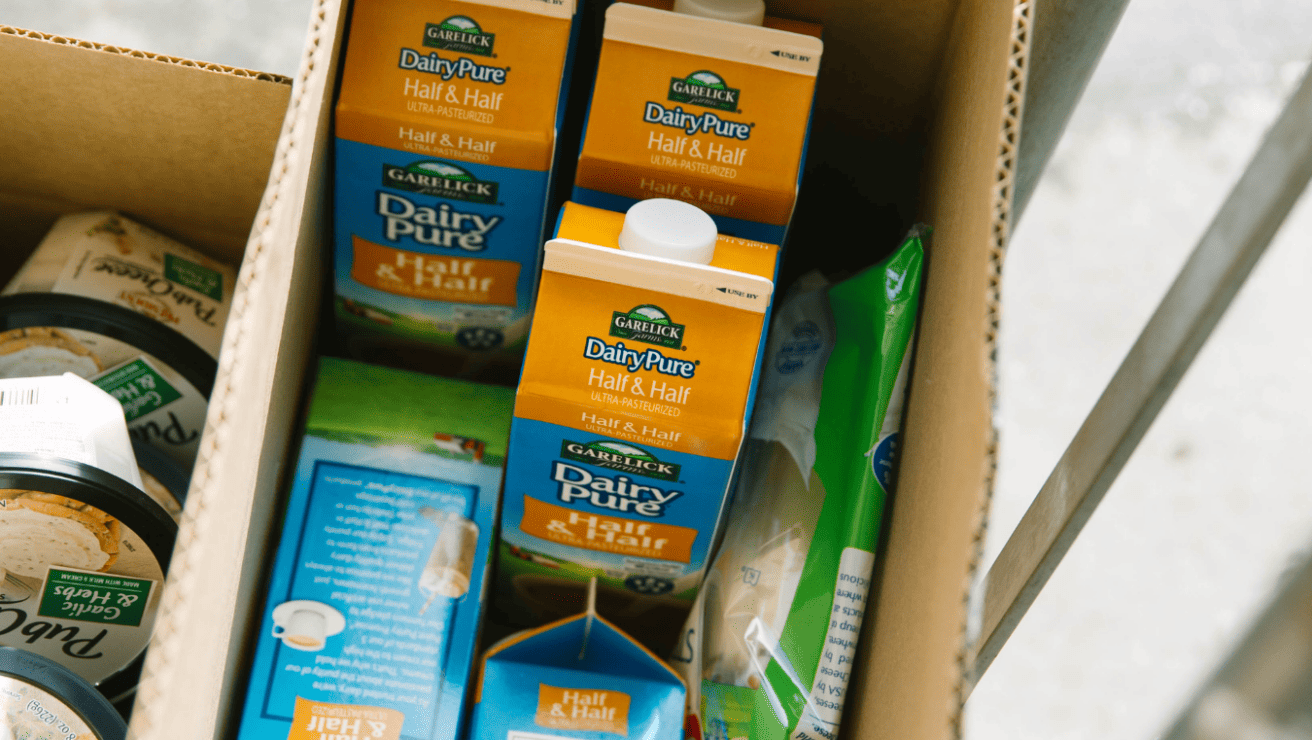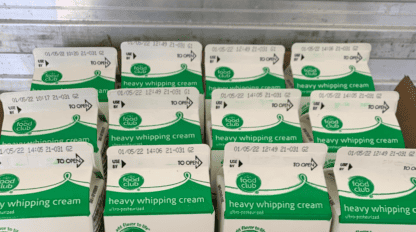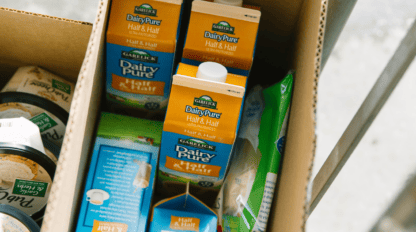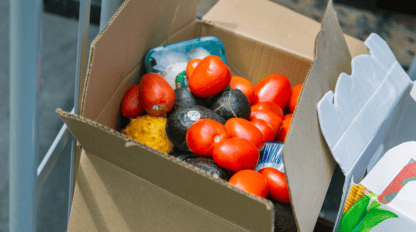Food Storage 101

Fruits and vegetables are important sources of nutrients. Unfortunately, due to their shorter shelf life, they’re also one of the biggest categories of wasted food – which means wasted money, too. You can prevent premature wasting, and save money, by utilizing food storage best practices to extend the life of your produce. Check out the tips below! We kick off with general food storage guidelines, then dive into specific vegetables for easy reference.
General Guidelines
Keep it cool
General rule of thumb: Cooler temperatures help produce last longer. If it can fit in your refrigerator space, we generally recommend putting it there (exceptions below). Consider:
- If your space allows, let unripe fruit ripen on the counter before moving to the refrigerator.
- Bananas CAN go in the fridge. Their skin will continue to brown, but the inside will stay the same ripeness for a few days. Alternatively, you can wrap the stems of a banana bunch in plastic wrap to slow the ripening process. Note: We recommend avoiding single-use plastic as much as possible, but if your fridge is full and you won’t get to all your bananas before they go, it’s good to have this trick in your back pocket!
- Potatoes and alliums (onions and garlic) can be kept in a cool, dry space, but shouldn’t be together (see below on ethylene). No refrigerator is needed.
- Tomatoes: Keep them on the counter if they’re whole. The cold will change their flavor.
- Basil: Keep it on the counter. Cold temperatures will cause its leaves to turn black.
Think about water
For most fruits and veggies, your goal is to minimize moisture to reduce the growth of bacteria. But for some, storing them in water can actually help them last longer.
- Produce in the fridge should go in an airtight container to protect it from the cool dry air the appliance blows. If you have a produce drawer, use it!
- For produce that emits a lot of water, like leafy greens and berries, add a clean dish or paper towel at the bottom to soak up the excess moisture.
- Fresh herbs, scallions, and asparagus can be stored in a glass of water, like flowers, with a bag over it in the fridge. Or, if you’re prone to knocking things over (it happens to the best of us), another option is to wrap the herbs in a wet paper towel and put the towel in a plastic or reusable bag in the fridge. One exception – basil (see above).
- Store cut or whole celery and carrots, and whole citrus, submerged in water for longer life. Dump and refill the water when it gets cloudy (use it to water plants if you can).
Ethylene
Most fruits and vegetables emit ethylene (eh-thuh-lean) gas as they ripen, but some produce more than others. It’s important to store high emitters of ethylene away from low emitters to prevent the low emitters from ripening faster than they otherwise would have.
On the flip side, if you’re trying to speed up the ripening process, you can use high ethylene emitters to your advantage. For example, try sticking an unripe avocado in a bag with an onion, and you’ll notice it ripen faster than it otherwise would.
High Ethylene
- Apples
- Avocados
- Cantaloupe
- Garlic
- Honeydew melon
- Onions
- Stone fruit (i.e. peaches, plums, nectarines, mangoes)
- Tomatoes
Low Ethylene
- Broccoli
- Carrots
- Cucumbers
- Eggplant
- Leafy greens
- Peppers
- Potatoes
- Watermelon
Produce-specific Guidelines
The following are instructions for whole fruits and vegetables. Generally, once you’ve cut into something, an airtight container in the fridge will always be best.
BANANAS
Store in the fridge. The skin will brown from the cold, but the ripeness inside will stay the same for a few days. Alternatively, wrap the stems in plastic wrap to slow the ripening process.
Note: We recommend avoiding single-use plastic as much as possible, but if your fridge is full and you won’t get to all your bananas before they go, it’s good to have this trick in your back pocket!
BASIL
Store in a glass of water, like flowers, on the counter.
BROCCOLI
Wrap in a damp paper towel in an unsealed bag in the fridge.
CARROTS
Store submerged in water in the fridge. They do not have to be kept whole – it’s okay to chop them to fit into a container.
EGGPLANT
Wrap in a dry dish or paper towel, place in a reusable or plastic bag, and put in the fridge.
FRESH HERBS (EXCEPT BASIL)
Parsley, cilantro, thyme, mint, rosemary, etc.
Store in a glass of water, like flowers, covered by a reusable or plastic bag in the fridge. Or wrap them in a wet paper towel and place in a plastic or reusable bag in the fridge.
STONE FRUIT
Peaches, plums, nectarines, mangoes, etc.
Ripen on the counter, then store in the fridge.
TOMATOES
On the counter while they’re whole. If they have any damage, put them in the refrigerator.


